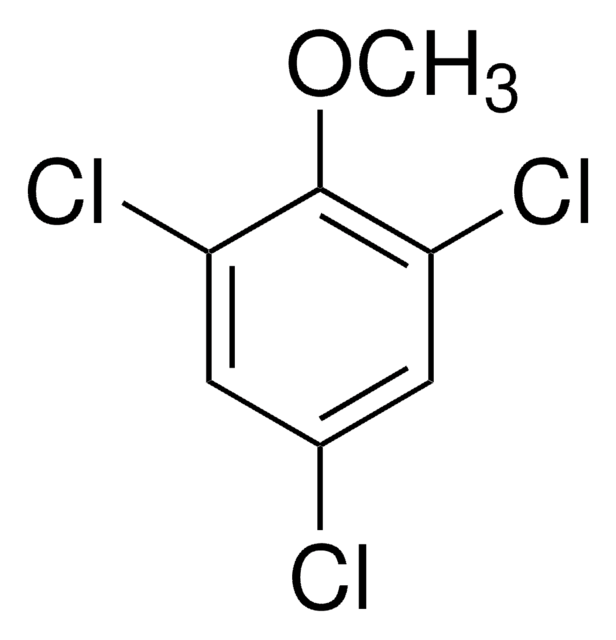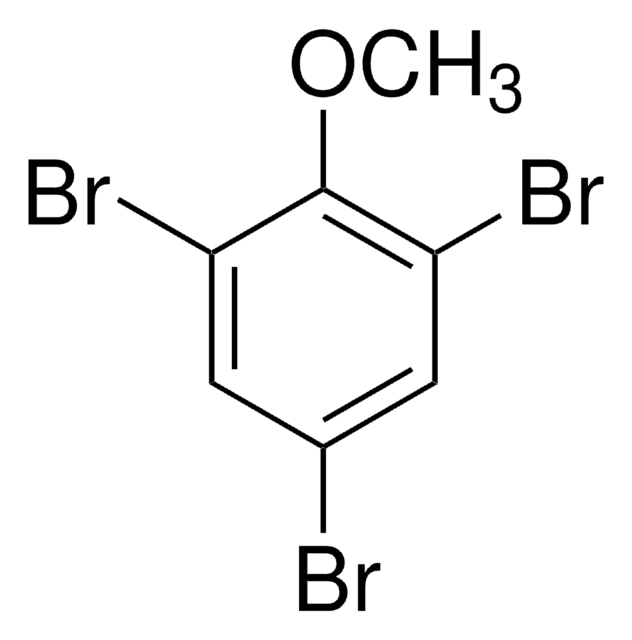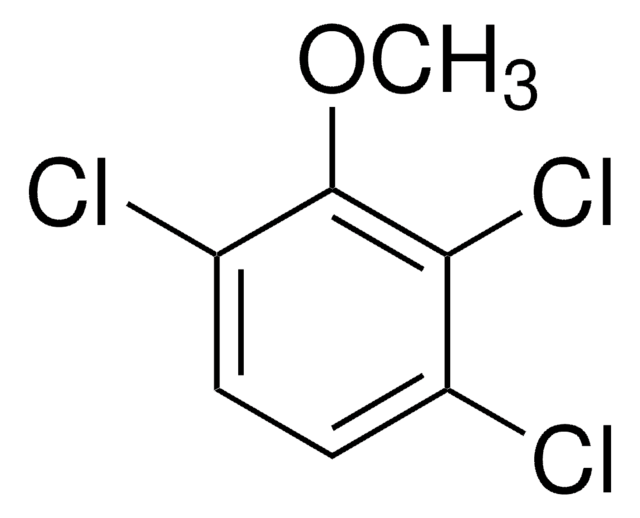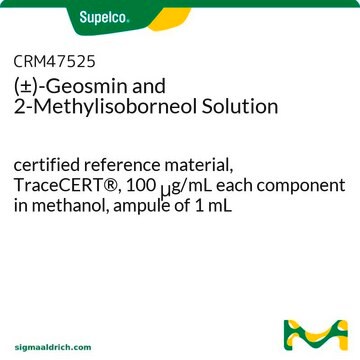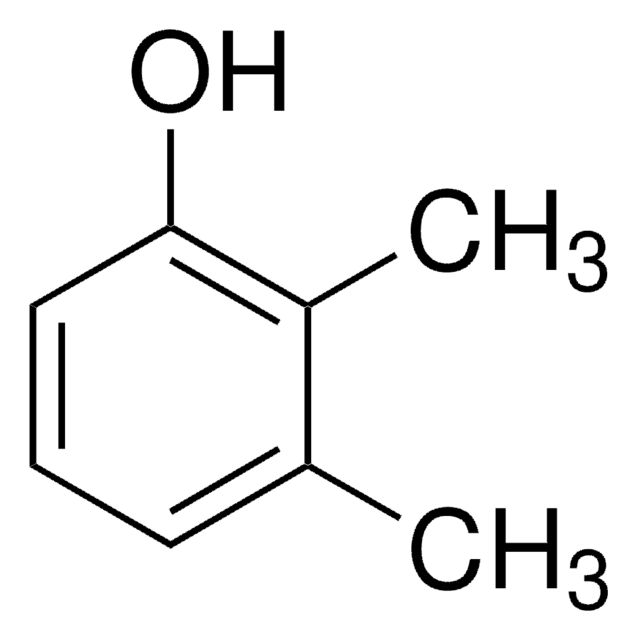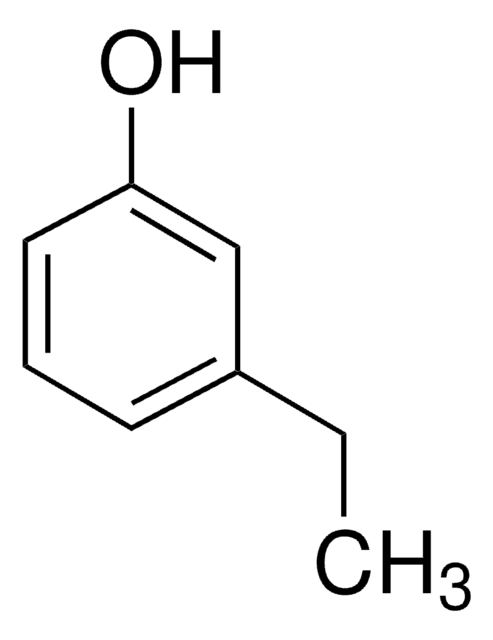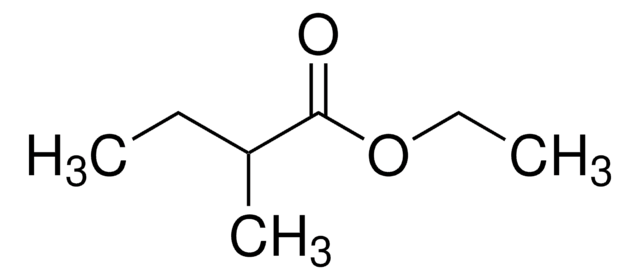235393
2,4,6-Trichloroanisole
99%
Synonym(s):
2,4,6-Trichloro-1-methoxybenzene
About This Item
Recommended Products
Quality Level
Assay
99%
bp
132 °C/28 mmHg (lit.)
mp
60-62 °C (lit.)
solubility
benzene: soluble(lit.)
cyclohexanone: soluble(lit.)
dioxane: soluble(lit.)
methanol: soluble(lit.)
water: insoluble (practically)(lit.)
functional group
chloro
SMILES string
COc1c(Cl)cc(Cl)cc1Cl
InChI
1S/C7H5Cl3O/c1-11-7-5(9)2-4(8)3-6(7)10/h2-3H,1H3
InChI key
WCVOGSZTONGSQY-UHFFFAOYSA-N
Looking for similar products? Visit Product Comparison Guide
General description
Signal Word
Warning
Hazard Statements
Precautionary Statements
Hazard Classifications
Acute Tox. 4 Oral - Aquatic Chronic 4 - Eye Irrit. 2
Storage Class Code
11 - Combustible Solids
WGK
WGK 3
Flash Point(F)
Not applicable
Flash Point(C)
Not applicable
Personal Protective Equipment
Choose from one of the most recent versions:
Already Own This Product?
Find documentation for the products that you have recently purchased in the Document Library.
Customers Also Viewed
Our team of scientists has experience in all areas of research including Life Science, Material Science, Chemical Synthesis, Chromatography, Analytical and many others.
Contact Technical Service